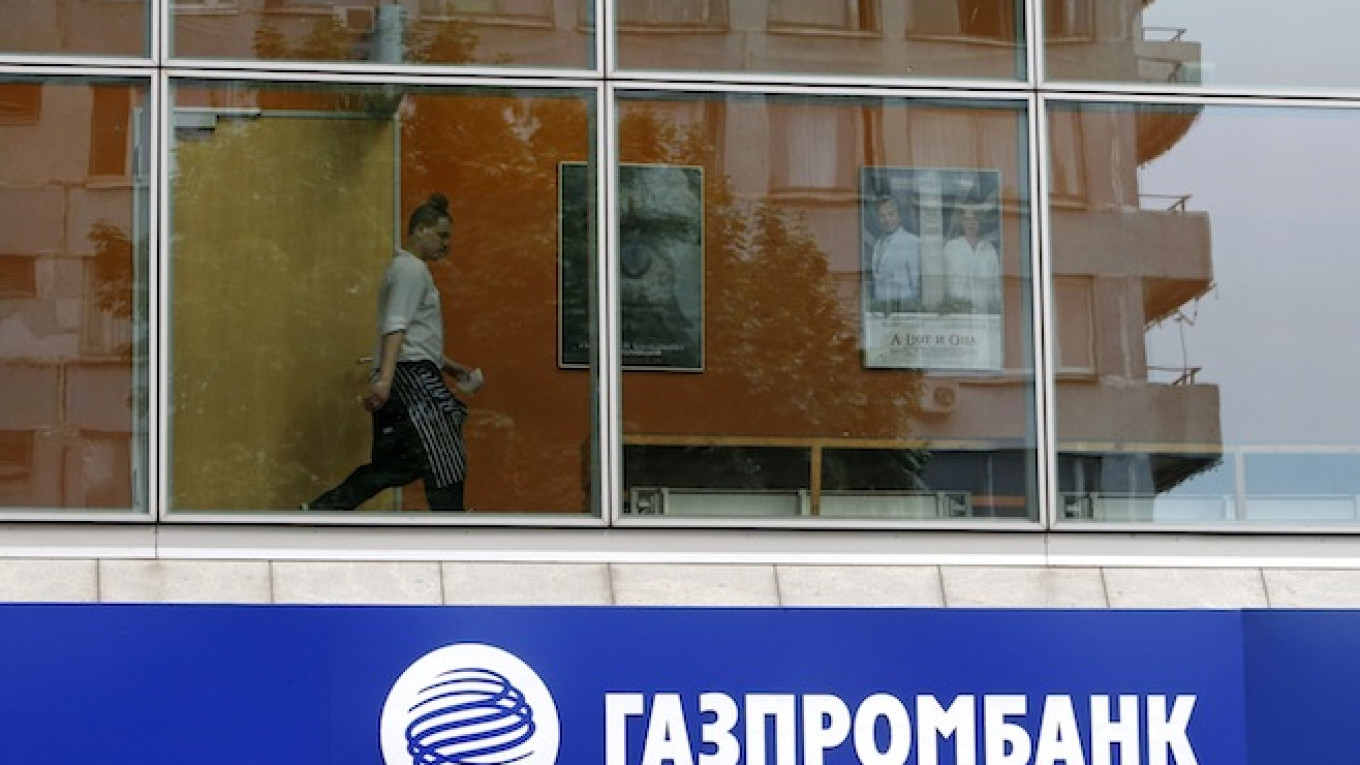Russia's state-owned Gazprombank met with South Korean debt investors for the first time last week as the threat of tougher sanctions arising from the crisis in Ukraine risks freezing it out of funding markets in Europe.
European Union governments are looking at banning European investors from buying new debt or shares of banks owned 50 percent or more by the Russian state. Gazprombank was already targeted in the last round of U.S. sanctions, which barred the bank from purchasing dollar debt with a maturation period of longer than 90 days.
While the new sanctions were being discussed in Brussels, Gazprombank held a two-day roadshow with fixed-income investors in Seoul.
It said the meeting was held in order to introduce it to Korea's largest investors, to develop its investor base in the Asia-Pacific region and in response to increasing economic and political cooperation between the two countries.
The two-day event "attracted substantial interest" from Korean investors, Gazprombank said.
Gazprombank issued a 1 billion euro ($1.3 billion), five-year bond at the beginning of July to repay a bond maturing in December. European institutional investors bought most of the debt.
See also:
EU Sanctions on Russian Banks Would Stifle Investment, Lending
A Message from The Moscow Times:
Dear readers,
We are facing unprecedented challenges. Russia's Prosecutor General's Office has designated The Moscow Times as an "undesirable" organization, criminalizing our work and putting our staff at risk of prosecution. This follows our earlier unjust labeling as a "foreign agent."
These actions are direct attempts to silence independent journalism in Russia. The authorities claim our work "discredits the decisions of the Russian leadership." We see things differently: we strive to provide accurate, unbiased reporting on Russia.
We, the journalists of The Moscow Times, refuse to be silenced. But to continue our work, we need your help.
Your support, no matter how small, makes a world of difference. If you can, please support us monthly starting from just $2. It's quick to set up, and every contribution makes a significant impact.
By supporting The Moscow Times, you're defending open, independent journalism in the face of repression. Thank you for standing with us.
Remind me later.






